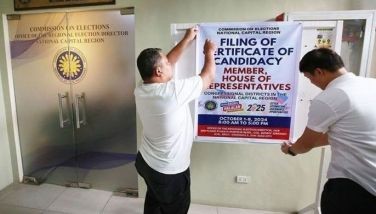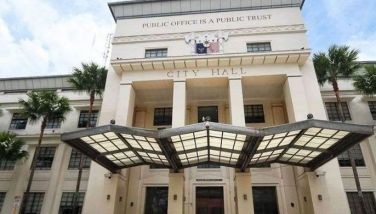Creation of body of experts to review textbooks sought
Owing to reports of persistent errors in textbooks used in elementary and high school levels, a city councilor is seeking for the establishment of an independent body composed of experts that would go through the textbooks used by the schools here in Cebu City.
Councilor Arsenio Pacaña, member of the City Council’s committee on education, said that the establishment of a reviewing body is paramount because mistakes in the textbooks are detrimental to the education of the children.
The persistent mistakes reportedly include factual, conceptual and grammatical errors. These errors have reportedly remained uncorrected despite a Senate investigation on the errors present in textbooks for English, Filipino, History, and Social Studies subjects.
Pacaña said that since printing of these textbooks is costly, experts both in government and the private sector have continuously called for DepEd to adopt stringent measures in the evaluation and review of textbooks to eliminate the errors; however, the call may have just remained stale.
“The alleged nagging predicament on textbook errors has continuously plagued the Philippine education system for decades…it is unfortunate that there are allegations and reports that textbooks intended to be used in both public and private elementary and secondary schools this school year have remained uncorrected despite the revelation in 2007 by experts that textbooks in English, Filipino, History and Social Studies contain factual, conceptual, and grammatical errors,” Pacaña said.
The government allocates hundreds of millions of pesos for textbooks to be distributed across the country, thus, it is imperative that textbooks should be carefully reviewed to avoid the possibility of reprinting, Pacaña said.
As early as 2005, educator Antonio Go revealed the errors found in a History textbook. Go, academic supervisor of the Marian School of Quezon City, said in a Senate investigation last year that the school textbook on Social Studies, Ang Bagong Pilipino, has “more than 100 errors.”
One of the factual errors Go pointed out was the complete name of PAGASA, which if spelled, would read as Philippine Atmospheric, Geophysical and Astronomical Services Administration. However, the textbook has inadvertently placed Geographical instead of Geophysical.
Another error he pointed out was the word “sangko,” which the book defined as the third eldest female sibling, when it should be male. The book also reportedly calls the body of water “look” (bay) as “gulf,” a totally different body of water, and which is called “gulpo” in Filipino.
Go had said even the maps in the textbook are erroneous, as the National Capital Region is positioned in the middle of Laguna Bay and the province of Batangas is divided in two.
Go further revealed in the Senate hearing that 50 percent of all public school textbooks on English, Filipino, and Social Studies are “defective” or full of errors.
The book, intended for Grade 3 pupils, is part of 12 million textbooks for Grades 1 to 5 funded by the World Bank. — Joeberth M. Ocao/MEEV
- Latest
- Trending






















